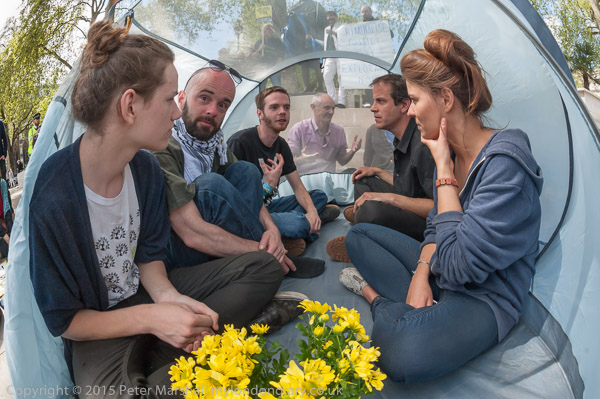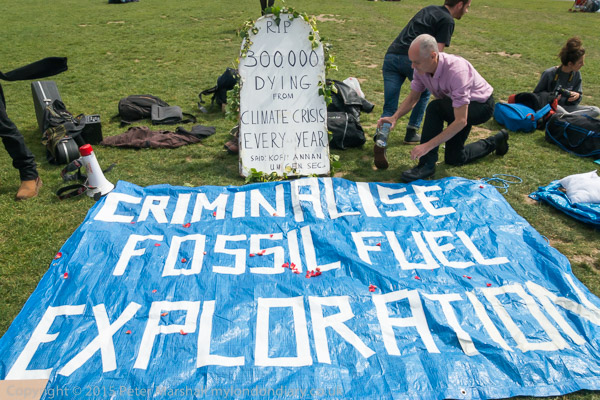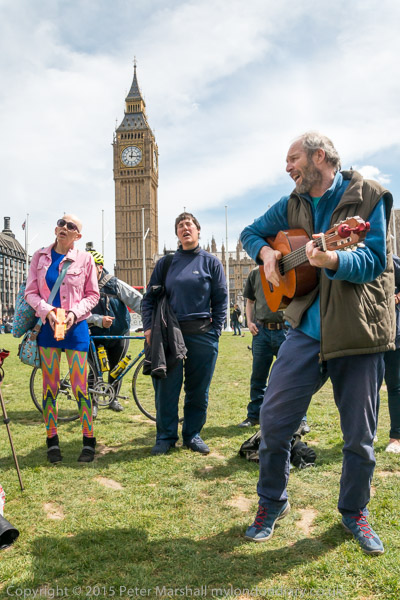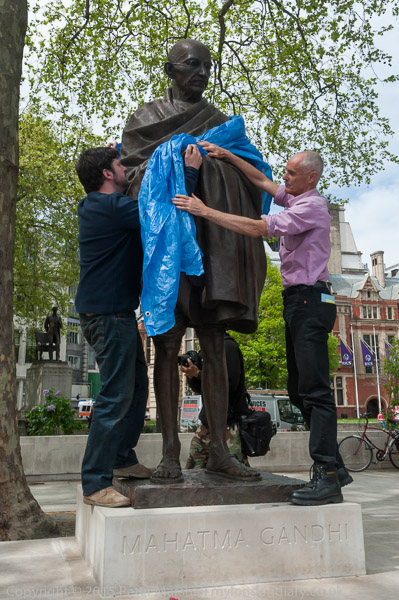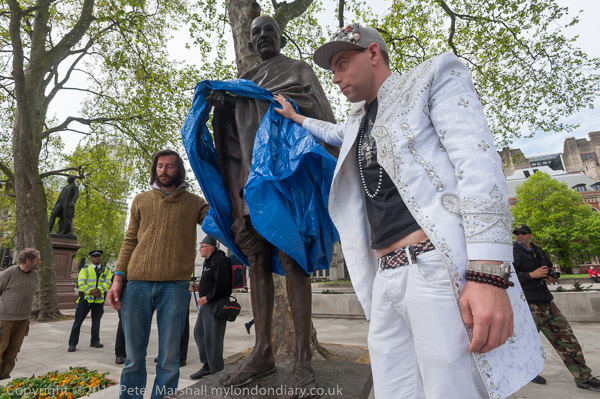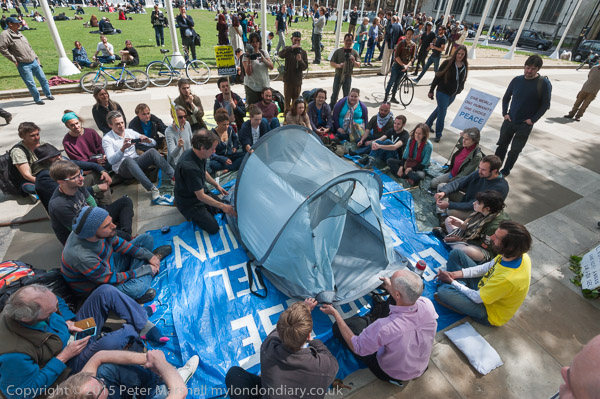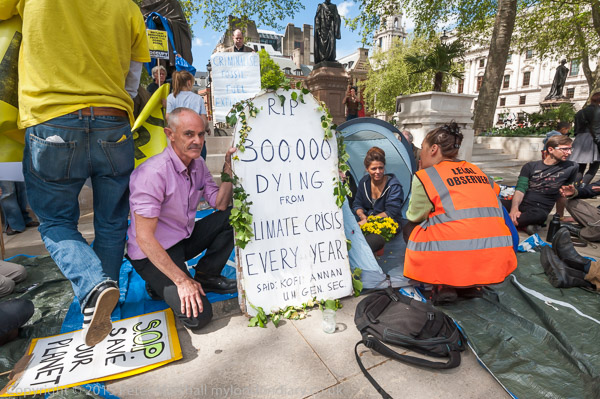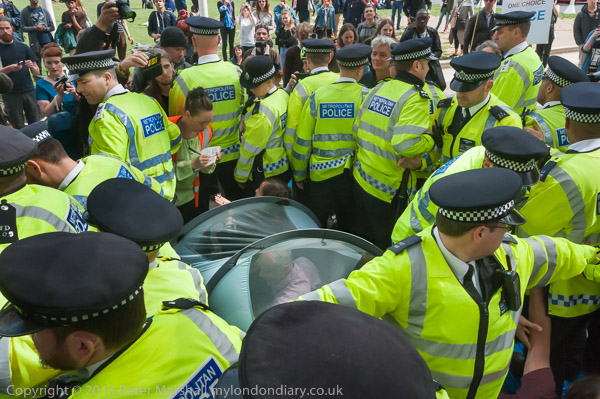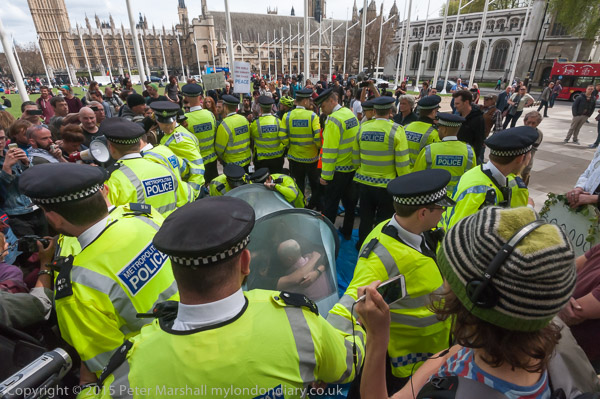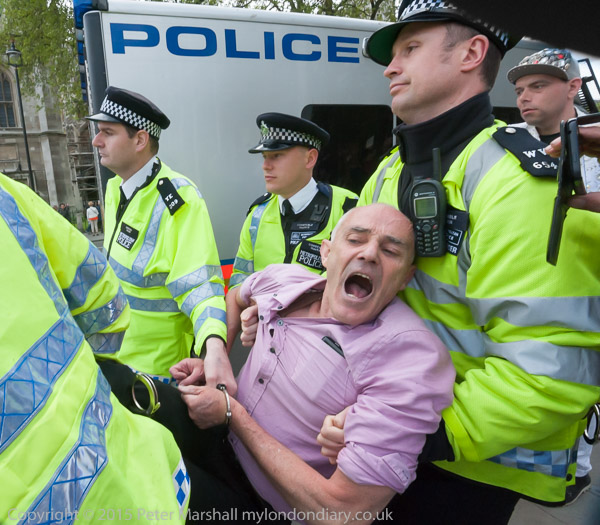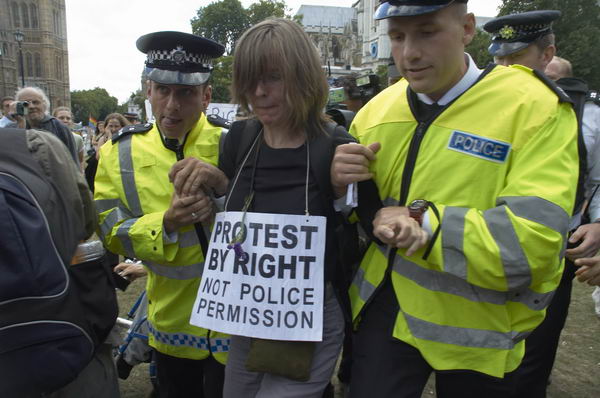
Freedom is something we almost universally value, but which is often hijacked by various groups, particularly on the extreme right to support particular causes which have little real connection with our undamental rights. Freedom is certainly not the freedom to do what we like regardless of the effect it has on others.

Freedom is not the right to own and carry guns or other weapons. It isn’t the right to spread disease we may have by not taking sensible precautions such as wearing a face mask in crowded places. It isn’t the right to increase the risk of others getting lung cancer or to drive after consuming alcohol or drugs.
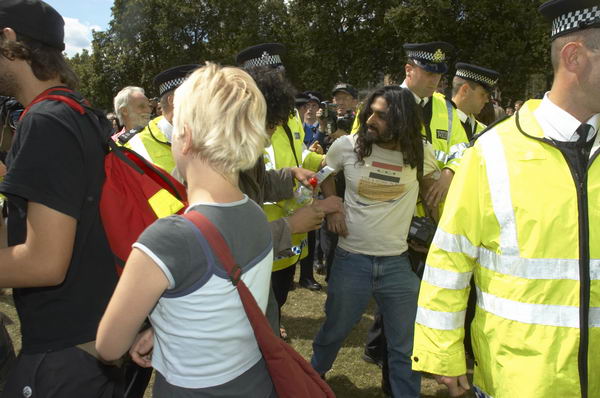
Arguably the most important of our freedoms is the right to hold and express political and religious ideas and to express these. But that is not absolute, and rightly there are laws against hate speech and incitement to others to commit criminal actions or threaten the lives of others.
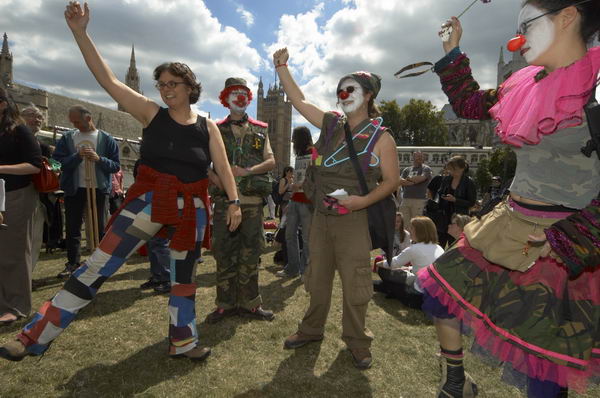
Back in 2005, the Labour government brought in a law to criminalise protest in Parliament Square. It was clearly a law which imposed unnecessary restrictions on our freedom and one which was brought in for a trivial reason, to end the embarrassment to the Labour ministers of one man, Brian Haw, continuing to protest, particularly over Iraq war and its disastrous consequences. That Tony Blair was annoyed by a regular reminder of his lies was not a suitable basis for legislation.
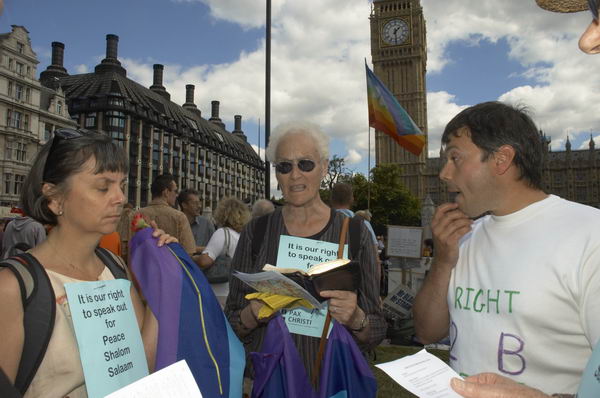
A regular series of harassment by police and others – almost certainly at the urging of the Home Secretary – had failed to shift this persistent protester, and civil servants were ordered to add a section to the bill which became the Serious Organised Crime and Police Act 2005 to make his protest illegal. In the event the act failed to apply to his protest and I wondered if this was a little deliberate subversion by at least one of those responsible for its drafting rather than simple incompetence. Because his protest had begun well before the SOCA law came in on 7th April 2005, it was apparently not covered by it. As I commented, “rather a lot of egg on government faces there.” This initial ruling by the High Court of Justice was eventually overturned by the Court of Appeal and these sections of the law were replace by other restictive laws in 2011.

On Sunday 7th August 2005, protesters came to Parliament Square to deliberately disobey the law, and the police came, some rather reluctantly, under orders to arrest them. The protestors argued that protest is a human right and cannot be restricted by law in a free society.
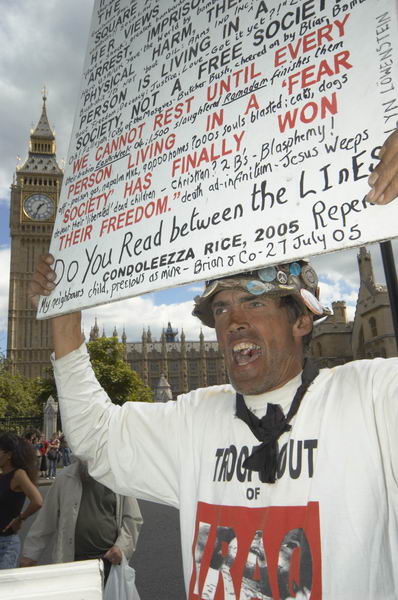
Brian Haw was there, but protesting legally as it appeared that the act didn’t include him. He held up a placard with the words from a speech in Boston by US Scretary of State Condoleezza Rice:
“if a person cannot walk into the middle of the town square and express his or her views without fear of arrest, imprisonment, or physical harm, then that person is living in a fear society, not a free society. We cannot rest until every person living in a ‘fear society’ has finally won their freedom.”
interleaved with his own comments on Guantanamo, Abu Ghraib, Belmarsh and the Iraq war and more.
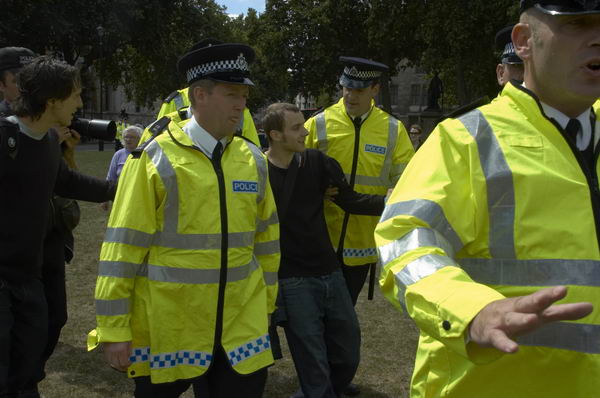
The police swooped on a few of those with posters or placards and arrested them, leading them away but their heart was clearly not in it and the great majority of the protesters were untouched, though
they were warned that their protest was illegal. As I commented: ” I saw five people arrested for simply peacefully holding banners supporting the right to protest. It happened on the square opposite our Houses of Parliament, and it made me feel ashamed to be British.”
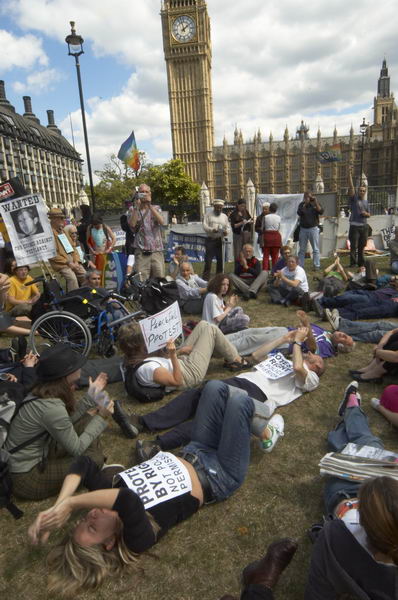
When the protest in Parliament Square ended, protesters were invited to take part in another illegal protest inside the one km restricted zone around Parliament, but on Westminster Bridge. Again taking their lead from Boston, though this time from 1773, and tipping tea into the water, campaigners calling for a low-level tax on foreign currency exchange transactions, as proposed by Nobel prize-winning economist James Tobin in 1978. This would deter speculation on currency movements, giving governments greater control over their fiscal and monetary policies, and reducing the power of speculators to affect the markets.
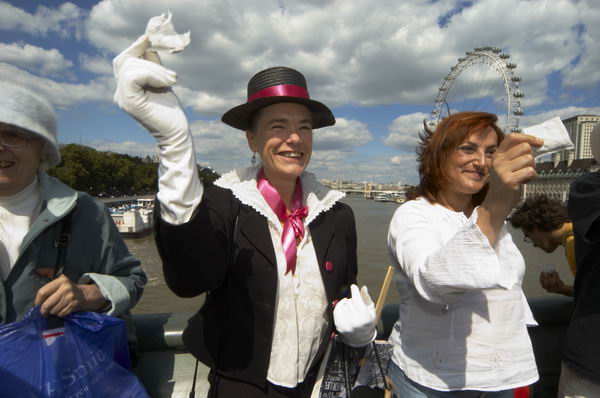
The connection between the tea bags torn to tip tea into the Thames, produced by large multi-national companies who are among the currency speculators, and the Tobin Tax, seemed a little weak – as doubtless was the brew in the river – though it did all alliterate nicely for the Westminster Tea Party – Time for Tobin Tax.
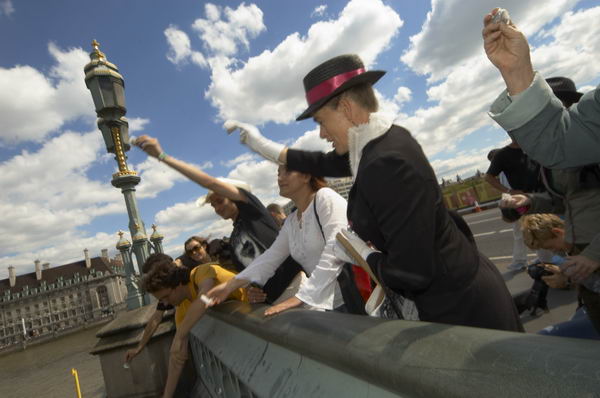
We are now seeing a law going through Parliament which will even further restrict our right to protest, increasing discriminatory policing, criminalising some traditional ways of life and seriously restricting and controlling protests in a huge shift further towards a police state. Unfortunately a large Conservative majority makes it seem inevitable that our freedoms will be significantly reduced.
More on My London Diary for August 2005.
All photographs on this and my other sites, unless otherwise stated, are taken by and copyright of Peter Marshall, and are available for reproduction or can be bought as prints.
